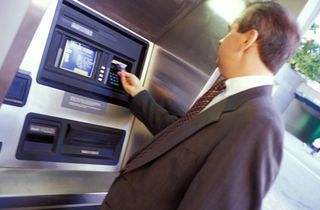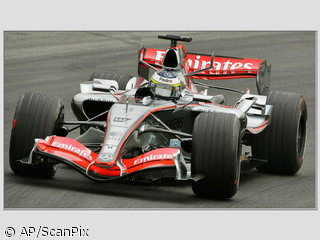Microsoft has asked the New Zealand government to implement strict regulations to protect online intellectual property
Published:
20 October 2001 y., Saturday
Microsoft has asked the New Zealand government to implement strict regulations to protect online intellectual property, including making Internet service providers (ISPs) responsible for taking down or blocking pirated material on the Internet.
The recommendations are contained in Microsoft's response to the New Zealand government's discussion paper on the Digital Technology and Copyright Act of 1994, a paper that seeks to update copyright laws for the Internet.
The Microsoft submission contains four main recommendations it believes should be included in any update to legislation in New Zealand.
First is the extension of copyright protection to "temporary copies" of digital music, movies, software, or books on the Internet.
Copyright owners are taking advantage of digital technology to change the rules of intellectual property, for example, providing time-limited copies of music or other multimedia, where traditionally consumers received a permanent copy when buying a work.
The wording of such an extension would be crucial, with Web pages threatening to be caught in copyright laws. Opening a Web page could be considered downloading a temporary copy, and so a breach of copyright.
Secondly, Microsoft wants New Zealand ISPs to be made responsible under the law for the removal of pirated material posted on the Internet by their subscribers. Microsoft says ISPs should have to "take down or block" infringing material.
The other recommendations cover the outlawing of software or hardware that can be used to circumvent copyright, and - naturally - harsher penalties for pirating software.
Šaltinis:
Newsbytes
Copying, publishing, announcing any information from the News.lt portal without written permission of News.lt editorial office is prohibited.
The most popular articles
Software company announced new structure_ of it_s business.
more »
 The Self-Service and Kiosk Association has published its 2009 Self-Service Consumer Survey, a comprehensive report that reveals what consumers like and dislike about self-service technology — and what they want more of.
more »
The Self-Service and Kiosk Association has published its 2009 Self-Service Consumer Survey, a comprehensive report that reveals what consumers like and dislike about self-service technology — and what they want more of.
more »
 Private investors should hold up to 15 percent of their wealth in physical gold, according to a German asset-management company that plans to set up 500 "Gold-To-Go" ATMs in Germany, Switzerland and Austria sometime this year.
more »
Private investors should hold up to 15 percent of their wealth in physical gold, according to a German asset-management company that plans to set up 500 "Gold-To-Go" ATMs in Germany, Switzerland and Austria sometime this year.
more »
 ATM and debit card theft is expected to grow 10 percent to 14 percent this year, according to a survey of financial institutions that was released today.
more »
ATM and debit card theft is expected to grow 10 percent to 14 percent this year, according to a survey of financial institutions that was released today.
more »
 Built from potatoes, steered with carrots and powered by chocolate.
more »
Built from potatoes, steered with carrots and powered by chocolate.
more »
 Students at a Tokyo elementary school are waiting quietly for a "special lecturer" in science class. But when they see "Saya", a robot relief teacher, the kids are pleasantly surprised.
more »
Students at a Tokyo elementary school are waiting quietly for a "special lecturer" in science class. But when they see "Saya", a robot relief teacher, the kids are pleasantly surprised.
more »
 This week - the New York Times announced a deal with e-commerce giant Amazon timed to the release of its latest Kindle e-book device.
more »
This week - the New York Times announced a deal with e-commerce giant Amazon timed to the release of its latest Kindle e-book device.
more »
 Wincor Nixdorf AG and NICE Banking, an independent ATM deployer in South Korea, have partnered to grow a network of ATMs at sites owned by the country's top communications provider, Korea Telecom.
more »
Wincor Nixdorf AG and NICE Banking, an independent ATM deployer in South Korea, have partnered to grow a network of ATMs at sites owned by the country's top communications provider, Korea Telecom.
more »
 “The telecoms package has never been about anything to do with restrictions on the internet,” Malcolm Harbour told us ahead of Parliament's debate Tuesday on the telecoms package, which aims to reform the existing European electronic communications framework.
more »
“The telecoms package has never been about anything to do with restrictions on the internet,” Malcolm Harbour told us ahead of Parliament's debate Tuesday on the telecoms package, which aims to reform the existing European electronic communications framework.
more »
 On 20 April 2009 the Prague Congress Centre will host a ministerial conference Safer Internet for Children, which is organised by the Ministry of the Interior in cooperation with the European Commission.
more »
On 20 April 2009 the Prague Congress Centre will host a ministerial conference Safer Internet for Children, which is organised by the Ministry of the Interior in cooperation with the European Commission.
more »
 Payment card breaches in 2008 led to the most compromises and security breaches of record in the last four years, according to a new report from Verizon Business.
more »
Payment card breaches in 2008 led to the most compromises and security breaches of record in the last four years, according to a new report from Verizon Business.
more »